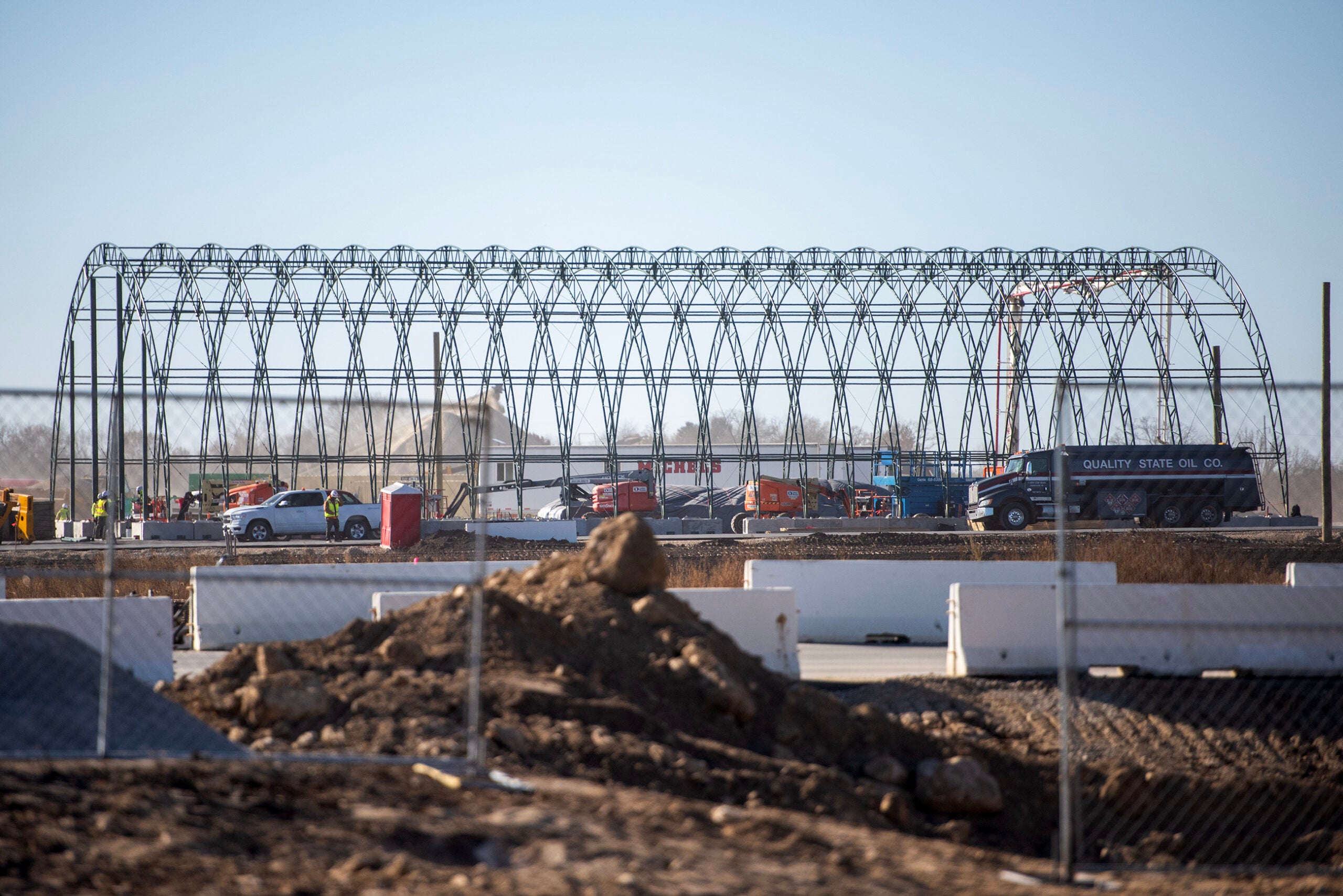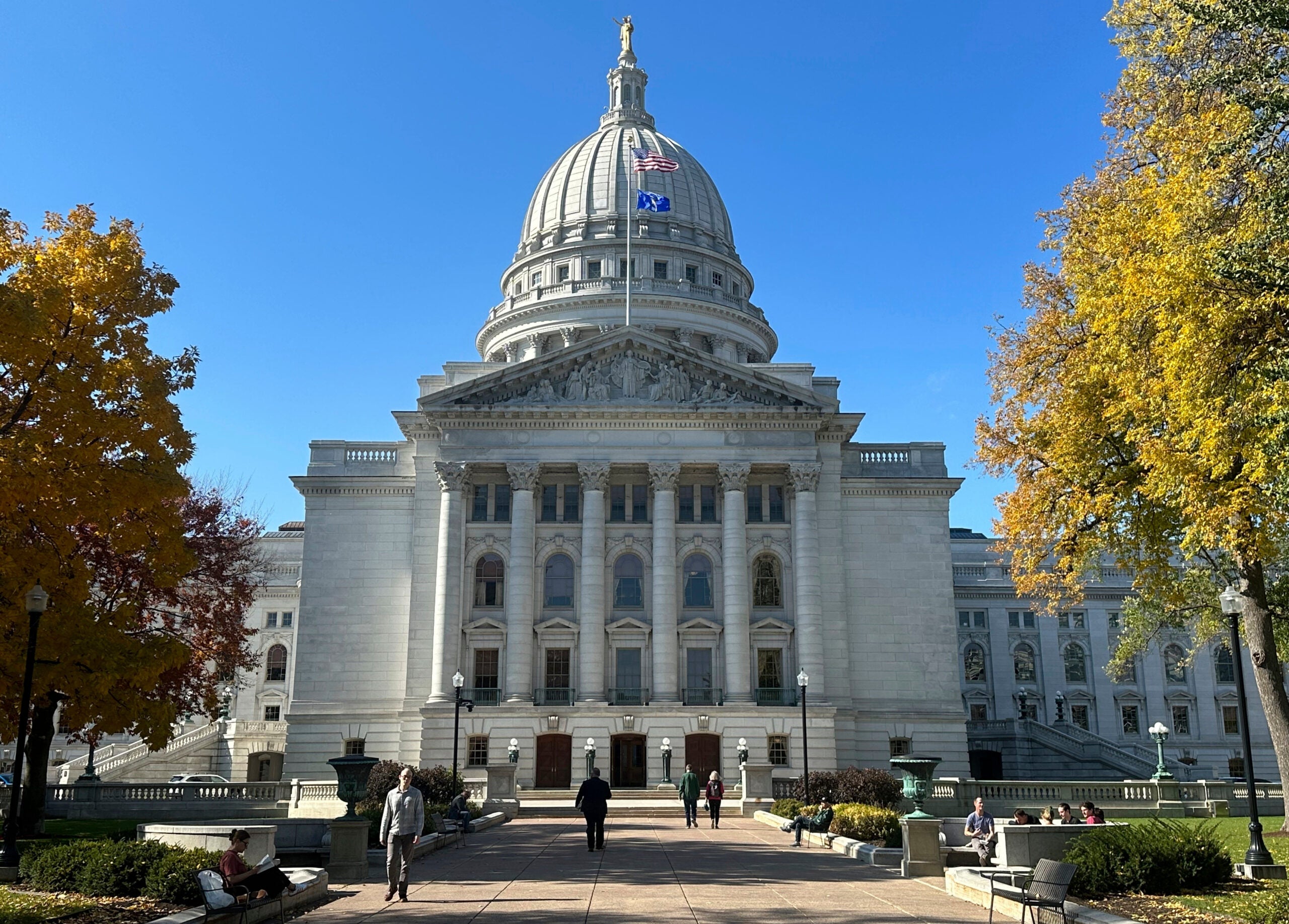A Dane County judge has dismissed a case against a former Natural Resources Board member regarding records about his decision to stay on past the end of his term.
In June 2021, Midwest Environmental Advocates filed a lawsuit against the board’s former chair Fred Prehn. They wanted to force him to turn over records after discovering texts that weren’t previously released under an open records request about his choice to remain on the board.
The environmental law firm asked a court to find Prehn violated state open records law by withholding or delaying their release. Former Supreme Court candidate and Dane County Judge Everett Mitchell found Prehn did delay or deny release of those messages for 16 months. Even so, he said the group hasn’t provided evidence that Prehn hasn’t produced all the records that Midwest Environmental Advocates requested.
News with a little more humanity
WPR’s “Wisconsin Today” newsletter keeps you connected to the state you love without feeling overwhelmed. No paywall. No agenda. No corporate filter.
Despite the delay, the environmental law firm won’t be able to recover attorney’s fees in the case. Mitchell cited a controversial Wisconsin Supreme Court ruling last year as to why he can’t hold Prehn accountable for those fees. A conservative majority of the court found in the case Friends of Frame Park, U.A. v. City of Waukesha that a requester can only be awarded fees if a court issues a ruling.
“Whether or not Midwest has shown it is entitled to any remedy, there is no dispute that Prehn dishonored this commitment to transparent government: there is no dispute that he delayed access to the records of his official acts as a government official for over one year and there is no dispute that he had no lawful reason to do so,” Mitchell wrote in his Feb. 14 decision. “Prehn’s explanations — to blame other government officials, or to blame his own inefficient recordkeeping, or to blame his unfamiliarity with technology — do not excuse him from the ‘routine duties of officers and employees whose responsibility it is to provide such information.’”
Prehn’s attorney Mark Maciolek said the ruling underestimates difficulties with finding specific texts. He noted a digital search turned up thousands of rows of data that would’ve been “extraordinarily time-consuming” to search manually on Prehn’s phone. He also said the case presented a challenge with balancing his client’s privacy interests with the disclosure of messages the court deemed public records. Maciolek said he’s grateful Midwest Environmental Advocates was willing to work with them on examining Prehn’s devices.
“Ultimately, we were able to provide the responsive communications to MEA,” Maciolek said in an email. “My client was committed to locating and providing any public records all along.”
In its February newsletter, Midwest Environmental Advocates said its lawsuit revealed Prehn exchanged dozens of text messages with Republican politicians and lobbyists about his decision to remain in his seat with the goal of controlling environmental policy.
“The public would not have learned of Prehn’s political motivations for holding over had MEA not requested the records and filed a lawsuit to obtain them,” the group stated.
Prehn resigned from the board at the end of last year.
Prior to the ruling in the Friends case, those requesting records could recover fees if a lawsuit was believed to be a reason for their release.
Advocates for open government have objected to the Supreme Court’s Friends ruling. The Associated Press reported that they fear it would allow government agencies to get away with waiting to turn over records until a lawsuit is filed. If records are then released, they contend it’s unlikely that those requesting them would receive a ruling needed to recover legal costs.
Republican lawmakers Rep. Todd Novak and Sen. Duey Stroebel have proposed a bill that would allow recovery of fees in open records cases regardless of whether there’s a ruling.
Wisconsin Public Radio, © Copyright 2026, Board of Regents of the University of Wisconsin System and Wisconsin Educational Communications Board.







